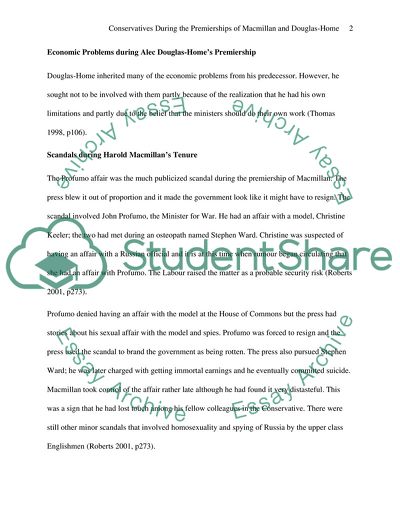Cite this document
(Conservatives During the Premierships of Macmillan and Douglas-Home Essay, n.d.)
Conservatives During the Premierships of Macmillan and Douglas-Home Essay. https://studentshare.org/politics/1749679-account-for-the-decline-in-support-for-the-conservatives-during-the-premierships-of-macmillan-and-douglas-home
Conservatives During the Premierships of Macmillan and Douglas-Home Essay. https://studentshare.org/politics/1749679-account-for-the-decline-in-support-for-the-conservatives-during-the-premierships-of-macmillan-and-douglas-home
(Conservatives During the Premierships of Macmillan and Douglas-Home Essay)
Conservatives During the Premierships of Macmillan and Douglas-Home Essay. https://studentshare.org/politics/1749679-account-for-the-decline-in-support-for-the-conservatives-during-the-premierships-of-macmillan-and-douglas-home.
Conservatives During the Premierships of Macmillan and Douglas-Home Essay. https://studentshare.org/politics/1749679-account-for-the-decline-in-support-for-the-conservatives-during-the-premierships-of-macmillan-and-douglas-home.
“Conservatives During the Premierships of Macmillan and Douglas-Home Essay”. https://studentshare.org/politics/1749679-account-for-the-decline-in-support-for-the-conservatives-during-the-premierships-of-macmillan-and-douglas-home.


